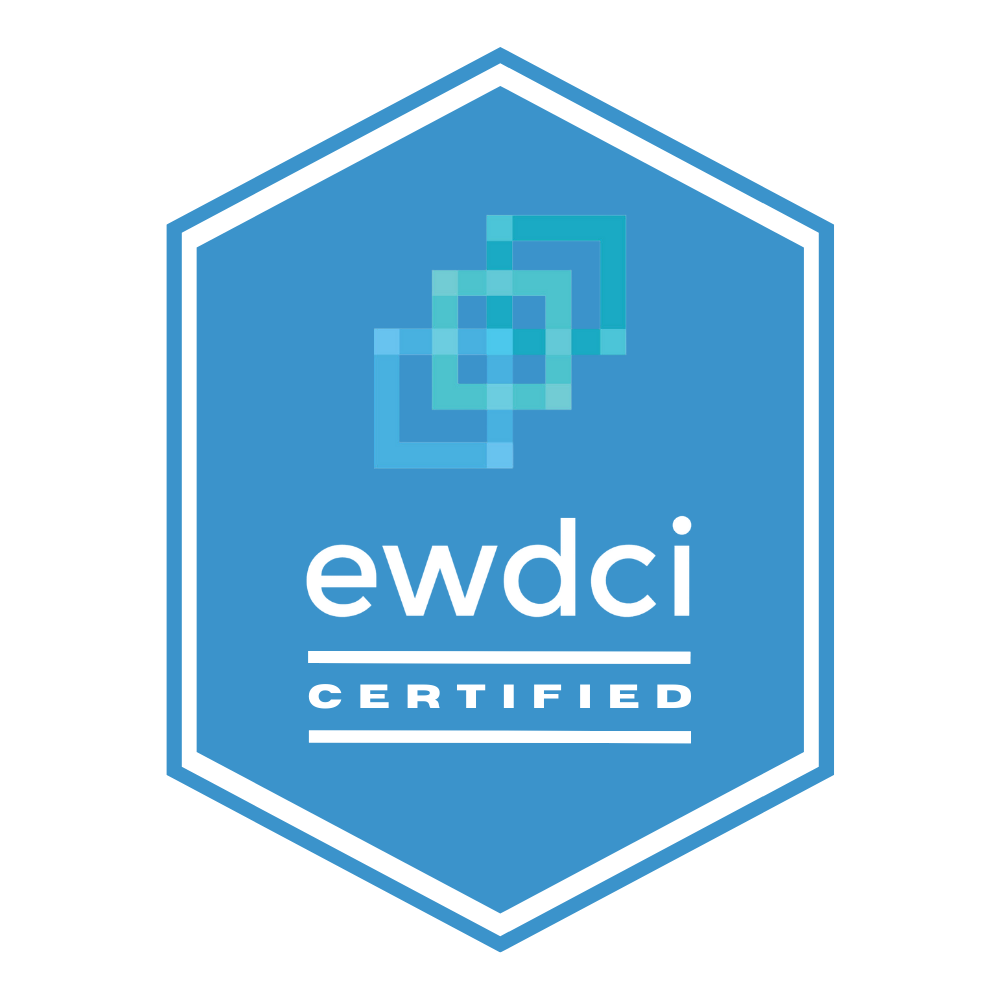In the current landscape of talent acquisition, harnessing the power of data through efficient online channels is indispensable in identifying and attracting the best candidates. The use of a Scraping API emerges as a crucial technological advancement in the realm of recruitment, enabling a streamlined collection of vast recruiter databases from diverse online sources. This approach isn’t just about volume; it’s about harnessing the data effectively to inform and adapt recruitment strategies, offering a wealth of opportunities to see other scraping use cases in action.
The potency of Scraping APIs lies in their ability to gather relevant information swiftly, yet this cutting-edge method also ushers in a series of legal and ethical challenges that need careful attention. It poses pressing questions about privacy, consent, and data ownership—issues that are integral to the responsible exploitation of such technologies. In navigating these matters, organizations are tasked with the delicate endeavor of optimizing their recruiting efforts through Scraping APIs, all while steering clear of transgressions against regulatory obligations and moral principles. The balance between operational efficiency and adherence to legal and ethical standards is indeed delicate and necessitates thoughtful consideration and strategy.
As businesses strive for competitive advantage in the digital age, the strategic implementation of Scraping APIs for collecting employees’ data can significantly bolster recruitment efforts. This data-driven technique not only revolutionizes the way we understand candidate pools but also amplifies the ability to effectively track company reviews and employee feedback, thus equipping employers with actionable insights. By embracing such advanced recruitment tools, organizations can refine their talent acquisition approach, carving out a niche for themselves in the modern job market while remaining cognizant of the importance of maintaining a strong ethical framework.
In a Nutshell

- Scraping APIs provide automated extraction of data from websites, making the process quick and efficient.
- They unlock valuable data from various sources such as job boards, company websites, and professional networking platforms.
- Scraping APIs streamline the search process and reduce manual effort, enhancing efficiency in data collection.
- Legal considerations such as user agreement compliance, privacy regulations, and copyright laws should be adhered to when using Scraping APIs.
Understanding Scraping APIs
Scraping APIs are specialized tools that facilitate the automated extraction of data from websites while handling complexities such as pagination, JavaScript rendering, and session management. These APIs are instrumental in data-driven industries, where they perform the heavy lifting of gathering vast amounts of information quickly and efficiently.
As the digital landscape evolves, the need for accurate and accessible data becomes paramount, especially for recruiters who rely on up-to-date information to identify and attract top talent.
For recruitment professionals, Scraping APIs can unlock a treasure trove of data from job boards, company websites, and professional networking platforms. This data includes resumes, job descriptions, candidate profiles, and other relevant information that can be used to create a comprehensive database of potential recruits.
By leveraging these tools, recruiters can streamline their search process, reduce manual effort, and focus on the strategic aspects of talent acquisition.
The advantage of using Scraping APIs lies in their ability to navigate through the intricacies of modern web architectures. They are designed to mimic human browsing behavior, thereby avoiding detection and bans that can result from traditional web Scraping methods. Consequently, recruiters can maintain a continuous and unobtrusive data collection process, ensuring they have access to the latest information without compromising website integrity or user experience.
Benefits of Data Scraping
The utilization of data Scraping offers recruiters a competitive edge by providing real-time access to a wealth of candidate information, which is essential for informed decision-making in the fast-paced recruitment landscape. This innovative approach enables the efficient monitoring of job boards, social media platforms, and professional networks to identify top talent and emerging skills in the market. Data Scraping can significantly reduce the time and resources spent on manual searches, allowing recruitment professionals to focus on engagement and relationship-building with potential candidates.
As the table below illustrates, data Scraping confers several distinct advantages to the recruitment process:
| Benefit | Description |
| Enhanced Efficiency | Automates the collection of vast amounts of data, leading to quicker identification of qualified candidates. |
| Improved Candidate Targeting | Offers access to detailed profiles, enabling customized outreach and engagement strategies. |
| Strategic Market Insights | Provides real-time labor market analysis, aiding in competitive compensation and role benchmarking. |
Through the strategic integration of data Scraping, recruiters can not only optimize their search for skilled individuals but also gain valuable insights that lead to more successful placements and a stronger understanding of the evolving job market.
Legal Considerations
Understanding the legal framework surrounding data Scraping is crucial for recruiters to ensure compliance with privacy laws and intellectual property rights. As data Scraping practices become more prevalent, legal boundaries must be acknowledged to avoid costly litigation and reputational damage. While Scraping publicly available data can be a powerful tool for recruiters, navigating the associated legal landscape is essential for ethical and lawful data collection.
To engage the audience, consider these critical points:
- User Agreement Compliance: Ensure that your data Scraping activities do not violate the terms of service of the website or platform being scraped.
- Privacy Regulations: Be aware of and comply with general data protection regulations such as GDPR in Europe or CCPA in California, which protect personal data.
- Copyright Laws: Respect copyright laws by not Scraping or using copyrighted content without permission.
- Data Usage: Clearly define how the scraped data will be used and ensure it aligns with legal standards and ethical considerations.
- Bots and Automation: Some websites have specific rules regarding automated access, such as bot Scraping; it’s important to adhere to these guidelines to avoid access denial or legal action.
Recruiters must stay informed about these legal aspects to maintain responsible data Scraping practices that align with current laws and ethical standards.
Types of Scraping API we offer:
We offer three main API for Scraping:
SERP Scraper API: A tool designed for extracting search engine results page (SERP) data, including search rankings, featured snippets, and related queries, usually for SEO monitoring and keyword research. (eg: Google Scraping API; Bing Scraping API; DuckDuckGo Scraping API…)
Social Media Scraper API: This API retrieves data from social networks, such as user profiles, posts, comments, hashtags, and engagement analytics, useful for social media analysis and brand monitoring. (eg: Facebook Scraping API; Twitter Scraping API; Instagram Scraping API…)
Ecommerce Scraper API: An interface for automatically gathering product information, pricing, reviews, and more from online retail websites, assisting in market research, competitive analysis, and price comparison. (eg: Amazon Scraping API; Etsy Scraping API; Ebay Scraping API…)
Quick access to our most demanded APIs:
Search Engine Scraping APIs:
https://proxyempire.io/scraping-api-for-naver/
https://proxyempire.io/scraping-api-for-baidu/
https://proxyempire.io/scraping-api-for-yandex/
https://proxyempire.io/scraping-api-for-yahoo/
https://proxyempire.io/scraping-api-for-wikipedia/
https://proxyempire.io/scraping-api-for-google-shopping/
Adult Website Scraper APIs:
https://proxyempire.io/scraping-api-for-adult-websites/
https://proxyempire.io/scraping-api-for-tinder/
https://proxyempire.io/scraping-api-for-onlyfans/
https://proxyempire.io/scraping-api-for-mym/
Social Networks Scraping APIs:
https://proxyempire.io/scraping-api-for-youtube/
https://proxyempire.io/scraping-api-for-quora/
https://proxyempire.io/scraping-api-for-tiktok/
https://proxyempire.io/scraping-api-for-pinterest/
https://proxyempire.io/scraping-api-for-snapchat/
https://proxyempire.io/scraping-api-for-whatsapp/
Ecommerce Platform Scraping APIs:
https://proxyempire.io/scraping-api-for-taobao/
https://proxyempire.io/scraping-api-for-lazada/
https://proxyempire.io/scraping-api-for-shopee/
https://proxyempire.io/scraping-api-for-alibaba/
https://proxyempire.io/scraping-api-for-aliexpress/
https://proxyempire.io/scraping-api-for-walmart/
Real Estate Scraping APIs:
https://proxyempire.io/scraping-api-for-realtor/
https://proxyempire.io/scraping-api-for-real-estate-platforms/
https://proxyempire.io/scraping-api-for-zillow/
More Scraper API Use Cases
Choosing the Right API
Having established the importance of legal compliance in data Scraping, recruiters must next carefully select an API that meets their data collection needs while adhering to these guidelines. The right API can be the gateway to a treasure trove of candidate data, but it must also be robust, reliable, and respectful of privacy norms.
When evaluating potential APIs, consider the table below, which contrasts key attributes:
| Feature | Emotional Benefit |
| Accuracy | Trust in data-driven decisions |
| Speed | Swift talent acquisition |
| Scalability | Growth with expanding ambitions |
| Support | Confidence in ongoing assistance |
| Compliance | Peace of mind with legal standards |
Accuracy ensures that the data collected is reliable, fostering trust among recruiting teams and stakeholders. Speed is critical for staying ahead in the competitive recruitment landscape, enabling quick action and efficient candidate sourcing. Scalability is a promise that as your organization grows, the API will keep pace, adapting to more extensive data needs. Support provides a safety net, ensuring that any issues encountered will be addressed promptly, thus instilling confidence. Lastly, compliance with legal standards offers peace of mind, knowing that your data collection practices are within the bounds of the law, protecting both your firm and the individuals whose data is being collected.
Setting Up Your Scraping Tool
Initiating the setup of your Scraping tool entails configuring the selected API to align with your specific data collection criteria and recruitment objectives. This foundational step is pivotal to ensure that the data harvested is accurate, relevant, and actionable. Establishing a clear configuration allows the API to interface seamlessly with recruiter databases and professional networking sites while respecting usage terms and privacy regulations.
To effectively set up your Scraping tool, consider the following key components:
- Authentication: Securely authenticate your API requests to access protected data sources.
- Target Specification: Define the URLs or domains from where the data will be scraped.
- Data Parameters: Specify the types of data you need, such as recruiter names, contact information, or job listings.
- Rate Limiting: Set request intervals to comply with the API’s rate limits and avoid IP bans.
- Output Format: Choose the preferred format for the extracted data, such as JSON, CSV, or XML.
Data Management Practices
Once your Scraping tool is properly configured, the next crucial step involves implementing robust data management practices to handle the influx of recruiter information efficiently.
This process begins with the establishment of a structured data storage solution, whether it be a cloud-based database, a local storage system, or a combination of both. It’s essential to choose a storage method that allows for scalability and easy access to the data for analysis and retrieval purposes.
The data management system should also incorporate a well-thought-out schema to organize the data effectively. This means defining clear relationships between different data sets and establishing consistent naming conventions and data types. Proper indexing and the use of primary and foreign keys will facilitate faster queries and prevent data redundancy.
Additionally, data quality must be a top priority. Implementing validation rules and routine checks can help maintain the accuracy and integrity of the data collected. This could involve checking for duplicate entries, ensuring data completeness, and verifying the correctness of the scraped information.
Lastly, data security protocols must be in place to protect sensitive recruiter information from unauthorized access or breaches. This includes the use of encryption, secure authentication methods, and adherence to relevant data protection regulations.
Advanced Scraping Techniques
To further enhance the efficacy of data extraction, advanced Scraping techniques employ a combination of sophisticated algorithms and machine learning to navigate and interpret complex recruiter databases. These state-of-the-art methods enable the collection of high-quality data from various online sources, including social media platforms, job boards, and corporate websites, where recruiter information is abundant but not always straightforward to extract.
Advanced Scraping techniques include:
- Dynamic Content Handling: Interacting with JavaScript-heavy sites to access content loaded dynamically.
- CAPTCHA Bypass: Implementing anti-CAPTCHA measures to maintain uninterrupted data harvesting.
- Proxy Rotation: Using a pool of IP addresses to prevent detection and blocking by web servers.
- Adaptive Parsing: Employing machine learning to recognize and adapt to changing website structures and data formats.
- Automated Quality Checks: Integrating algorithms to validate and clean data in real time, ensuring accuracy and usability.
These sophisticated methods are integral to overcoming the challenges presented by modern web technologies and anti-scraping measures. By utilizing these advanced techniques, businesses and individuals looking to aggregate recruiters’ data can do so efficiently, maintaining a competitive edge in the fast-paced world of talent acquisition.
FAQ:
Is it legal to use a Scraping API to collect recruiters’ data?
The legality of using a scraping API to collect data depends on several factors such as the website’s terms of service, the data being collected, and how the data will be used. Generally, public information can be scraped, but it’s important to review the legalities and ethical considerations specific to your use case and jurisdiction.
What are some common uses of recruiters’ data collected via Scraping APIs?
Recruiters’ data collected through Scraping APIs can be used for a variety of purposes including market research, lead generation, building recruitment databases, analyzing industry hiring trends, and enhancing job matching platforms.
Can I collect any recruiter’s data from any website using a Scraping API?
While technically possible, not all data may be collected due to the restrictions placed by some websites, such as anti-scraping measures or limitations outlined in their terms of service. It’s crucial to ensure compliance with these guidelines to avoid legal issues.





















